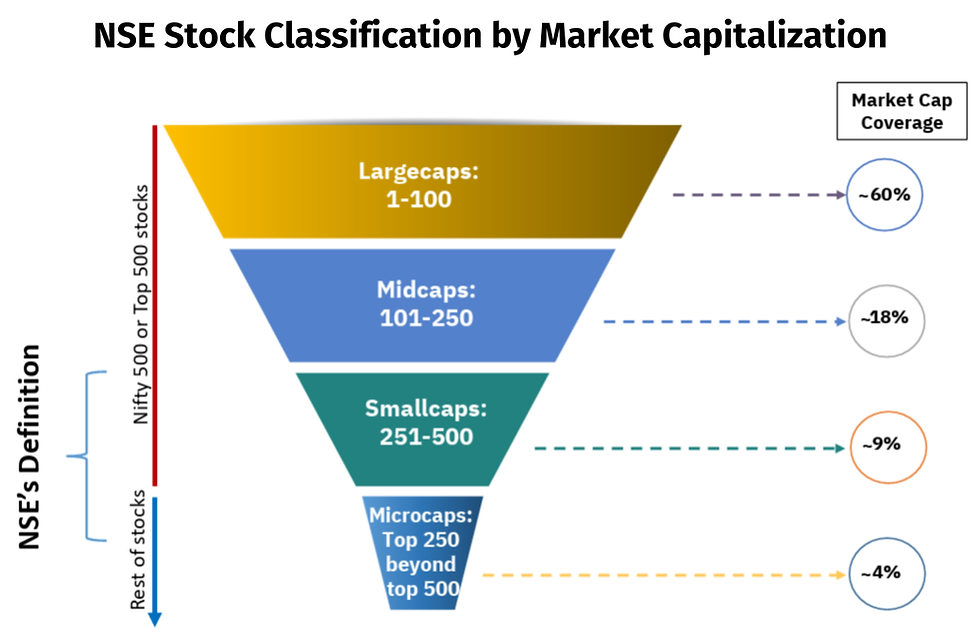Impediments To Wealth Creation And Preservation
- Akshay Nayak
- Jun 11, 2023
- 4 min read
Creating wealth is a painstaking exercise. It requires consistent effort over a long period of time. The margin for error available in the exercise of wealth creation is very low. The same applies to preserving wealth that has already been created. But as individuals we are prone to committing errors in both these processes. These mistakes prove to be impediments to these processes. They set us back significantly in our endeavours to create and preserve wealth. Therefore, today I will talk about each of these errors in detail. I will also talk about measures to manage them.
In order to create wealth effectively, we must first create a robust foundation to allow us to do so. Creating a foundation for wealth creation involves getting three things done. We first need to create an adequate emergency reserve (6 to 12 months worth of expenses).

We also need to ensure that we have adequate life and health insurance coverage in place. Not doing so would mean that we leave ourselves vulnerable to unexpected expenses and adverse events. Such situations can have two possible outcomes. Firstly, we would have to pause investments for a few months.
Our monthly savings would have to be directed entirely towards meeting the unexpected expense. And if the event or expense is more significant, the implications may be worse. Examples of such expenses or events could include a huge medical bill, or the death of an income earning member. In such cases, we may have to redeem our existing investments to help meet the expense. This shows that market risk is not the biggest threat to wealth creation. It is rather making repeated redemptions from our portfolios that is the biggest threat.
Repeated redemptions interrupt the effects of compounding. This compromises the ultimate size of our corpus. Therefore, it is only after our emergency fund and insurance coverages are in place that we must initiate our wealth creation endeavours. It negates the need to unnecessarily redeem our investments during the accumulation phase. This allows for a significant final corpus to be built over our intended investment horizon. In the pursuit of quickly growing our wealth, some of us may turn to leveraged trading. Trading stocks with our own funds can be dangerous enough as it is.
But when trades are carried out with borrowed funds, the ill effects get amplified. Using leveraged trading during the wealth creation phase is extremely dangerous. It can lead those using such methods to utter financial ruin if things go wrong.

Engaging in leveraged trading after we have created enough wealth for ourselves is more understandable. But that does not give us the license to use a significant portion of our wealth corpus for leveraged trading. Leveraged trading with say 25 lakh out of a net worth of 10 crore is understandable. The effects on overall networth would be minimal even if the entire amount is lost.
But doing the same with 6 or 7 crore out of 10 crore could jeopardise the individual's financial situation if things go wrong. Leveraged trading is therefore best avoided at all times. Ignoring the effects of taxes on our investments and assets again compromises our prospects of creating and preserving wealth. Taxes are one of the systemic forces that eat into our returns. But unlike inflation, our tax liability can be rationalised and controlled. An abnormally high focus on tax saving is never welcome. But having a basic understanding of investment taxation and tax laws is essential.
This helps us reduce our tax outgo, thereby adding to our wealth over time. Picking assets that are taxable only on redemption over those where periodic income is taxed is the simplest example of a tax efficient investment decision. This allows for uninterrupted compounding over a period of time. Investing in products that are taxable at special rates rather than applicable slab rates is another example. The natural consequence in both these cases is that our tax liability is reduced. Therefore our returns and final corpus would be higher.
During the wealth preservation phase, some of us may display extremely polarised spending behaviour. We may spend lavishly on materialistic things. To balance this out, we may turn miserly in other areas of our spending. For instance, we may buy the most expensive car available in the market. And to balance this out, we may 'save' by going to a restaurant where the food is cheap. But the money saved on the restaurant bill cannot make up for the money spent on the car. Doing this repeatedly would obviously deplete our wealth over a period of time.
Such polarised spending behaviour should be avoided. Only then can we create and preserve meaningful amounts of wealth. The exercises ofreating and preserving wealth Mistakes made in our endeavours to create and preserve wealth may take a very long time to correct. Some of them may even be irreversible. Creating and preserving wealth therefore has as much to do with avoiding mistakes as it does with doing the right things. We therefore need to lay equal emphasis on both these aspects for our efforts to create and preserve wealth to be successful.



Comments